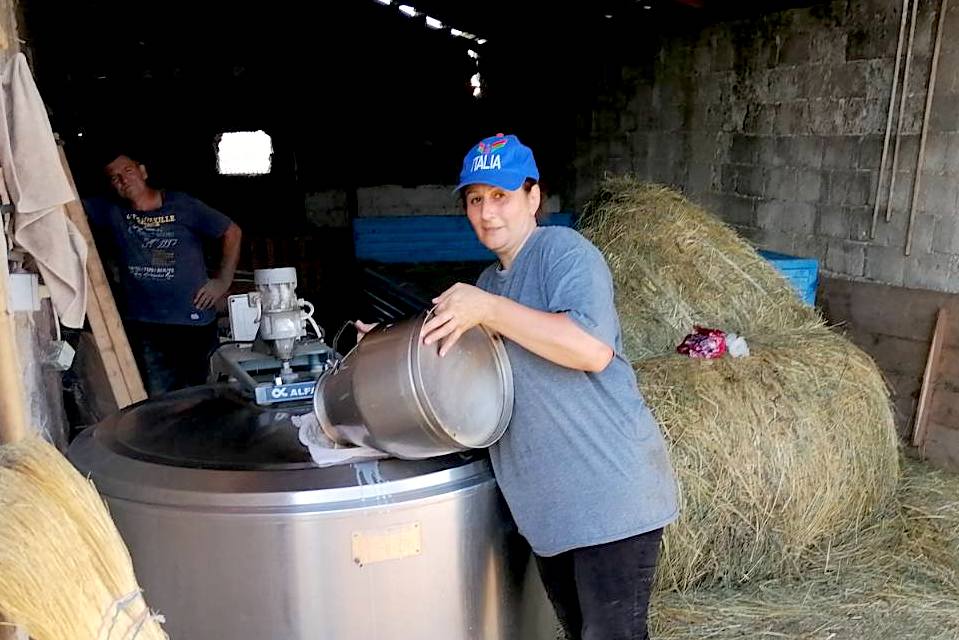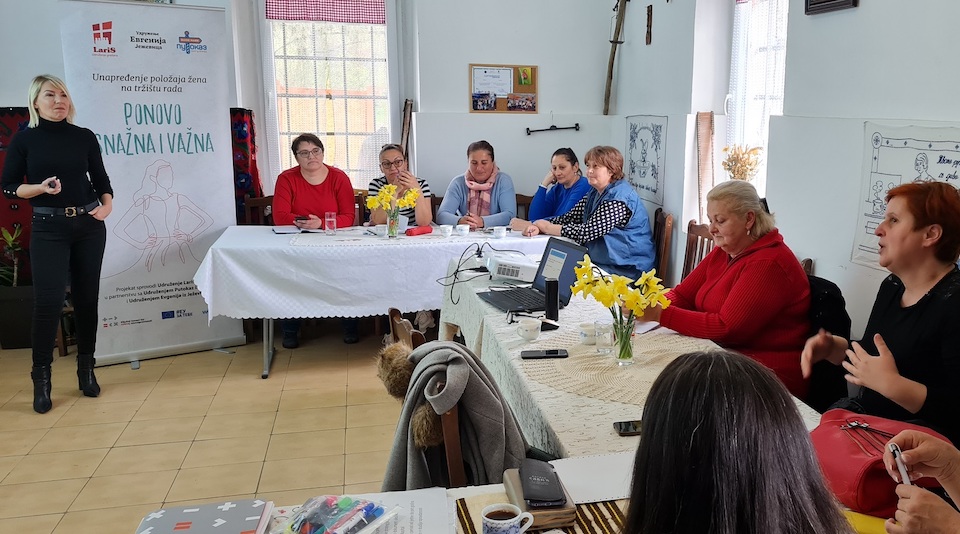Hundreds of rural women across Serbia are job-ready with new skills and confidence
Date:
More than 600 women living in rural areas throughout Serbia are now better equipped to participate in the labour market thanks to a collaboration between UN Women, the European Union and civil society organizations to deliver skills and entrepreneurship training. Closing the employment gap between women and men in Serbia is crucial for achieving equality and training efforts like these are moving this important agenda forward.

The 600 women gained skills in business innovation and development, organic agricultural production, sewing, weaving as well as cultivating medicinal and aromatic plants. Those that were keen to start their own business also got direct support to take the first steps in their new enterprises.
Ljiljana Petrović, a representative of the Citizens Association, Laris, in Central Serbia, says that rural women are motivated to participate in the labour market but often lack the chance to learn the skills needed. “We provided them with individual counseling to assess their competencies, with the aim of increasing their employability and motivating them to be more active in the labour market,” she said.
“The lecturers presented various employment and self-employment opportunities. It is very important that the women received practical information on the basics and the working capital needed to start specific activities, such as a hair salon, beauty salon, or a florist shop. At the workshops, the representatives of the National Employment Service also informed them about employment support programmes,” explains Ljiljana.
With the training only recently completed in Central Serbia, initial results are promising, says Ljiljana. Of the 95 women that her organization worked with in Kragujevac and Čačak municipalities, so far 15 have found employment, while a further 19 have applied for funds from the National Employment Service (NES) to start their own business.

Apart from the lack of training opportunities, women from rural areas also face poor internet access, infrastructure and transport. Like their urban counterparts, they also have to deal with prejudices and stereotypes about women's employment and entrepreneurship. Even for those who have family support, it is hard to find time away from household chores, which they usually must prioritize.
Dragana Nešović from the village of Ježevica in Central Serbia participated in the training. Her household is engaged in cattle breeding and milk production. “One of the most important things that I’ve learned is how to make my own business plan, and I used this plan to apply for the funds to buy a machine that will make my work in the household much easier,” she said. “I think that the training has already helped me a lot, and it will mean even more to me in the future, because now I am more aware of different means of funding which I plan to use in the future,” she explains.
Nataša Vujašević, President of the rural women’s association “Evgenija” in Ježevica village, says that these trainings are important not only because of the knowledge that women gain, but also because of the networking between the women. “These are all steps towards empowerment – to start their own businesses, to build their confidence and to have their work acknowledged as something valuable,” she says. “They lack knowledge in project writing, and this is especially valuable to them. That is why we are very grateful for the support of UN Women to women in rural areas. Through this kind of project, we can educate ourselves on how we can improve our position and the position of our family. A happy and satisfied woman is the basis of a stable family, and these projects are the wind at our back,” she concludes.
The training was organized with UN Women and European Union support. It was coordinated by five civil society organizations dealing with women’s empowerment: Zrenjanin Educational Center, Handcrafts of Luznica – Women Ethno Center, Citizens Association Laris, Association for Development of Creativity and the Ethno Network.